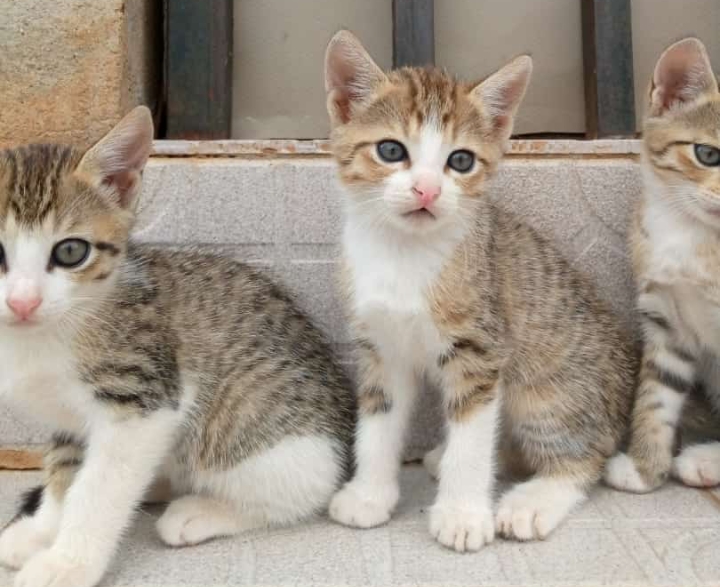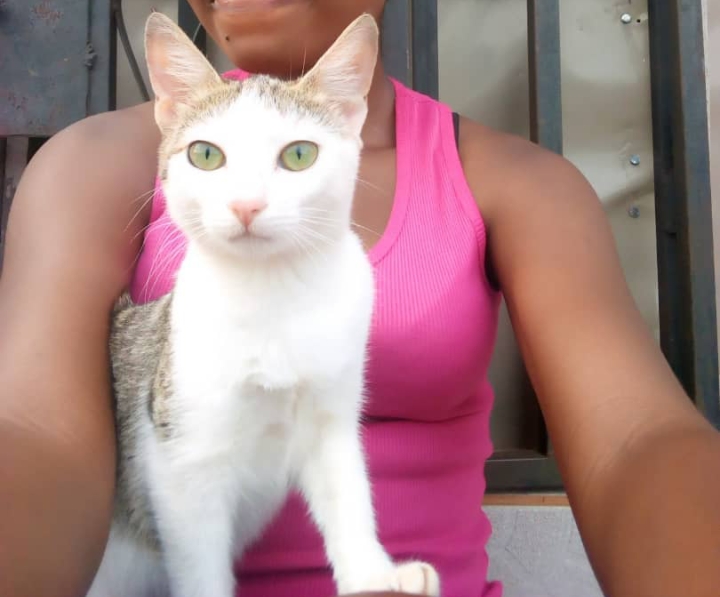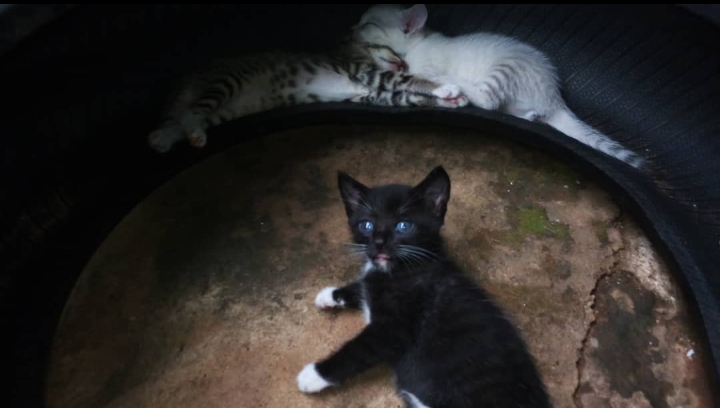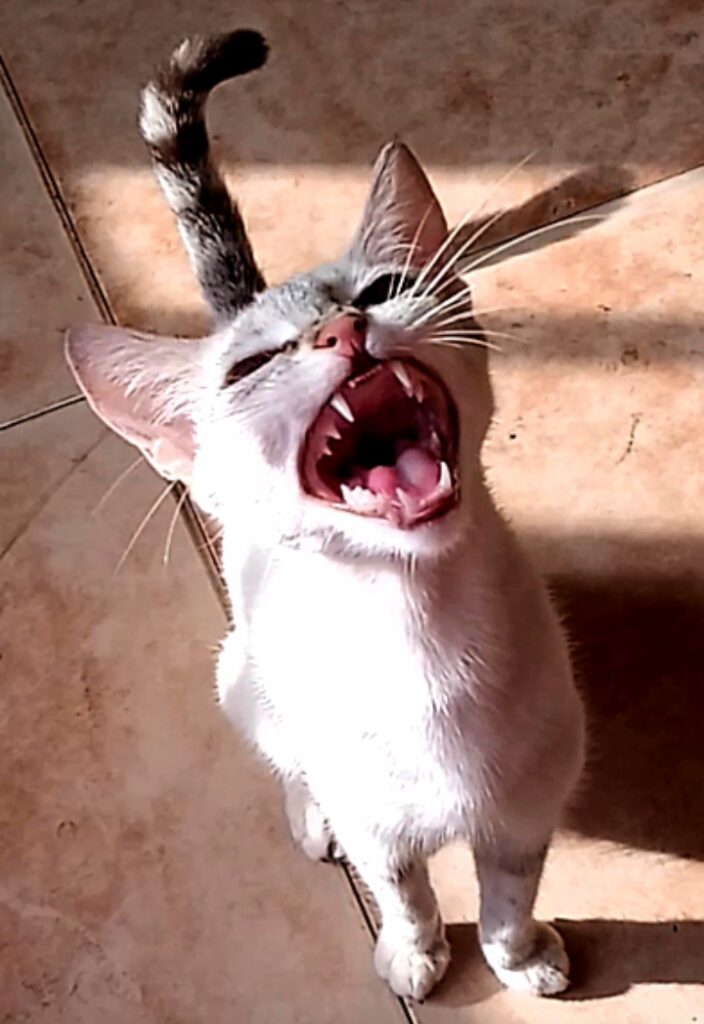Having a cat as a pet in Nigeria?: All you need to know
I have kept cats as pets for sometime now. So as someone who has been with cats for years, I’m in position and happy to share with you my experience with them; the good, the bad and the ugly.

If you have cats or you are thinking of getting one for yourself here in Nigeria, read on because I’ll be revealing a lot to you.
Pet Ownership in Nigeria
Firstly, I’ll like to talk about pet ownership in Nigeria. While dogs traditionally are more popular in many Nigerian households, there has been a noticeable shift in liking towards cats for a few people.
As pet ownership becomes more common across the country, its essential to understand the unique joys and responsibilities that come with having a cat by your side.
Growing Popularity of Cats as Pets in Nigeria
I’ve witnessed firsthand the growing popularity of cats as pets in Nigeria. There are numerous ads on e-commerce sites for the adoption of cats, both the local and foreign breeds are being adopted these days. When my cat delivered the first time, I wasn’t sure I would find buyers. However, it turned out to be an easy sell.
Their independent yet affectionate nature, combined with their playfulness, make cats irresistible companions for anyone looking to get one.
The purpose of this post
So, why am I writing this blog post? Well, as someone who has experienced the joys and challenges of cat ownership in Nigeria, I want to share my knowledge and expertise with fellow cat enthusiasts. If you’re considering adopting your first cat or you just want to know more about them, I’m here to provide you with all the information you need.
Benefits of Having a Cat as a Pet
Let’s talk about why having a cat as a pet is simply purr-fect! Cats bring so much joy and companionship into our lives. From their playful antics to their soothing presence, cats just have this calm aura about them. Plus, they’re excellent at keeping pests like mice and rats at bay, making them valuable additions to any home.
And let’s not forget about the health benefits. Yes you read that correctly . Health benefits – studies have shown that owning a cat can help reduce stress, lower blood pressure, and improve overall mental well-being. So, if you’re looking for a loyal and loving companion, look no further than a furry feline friend!
Considerations for Cat Ownership in Nigeria
Now, before you rush out to adopt a cat, there are a few things to consider, especially in Nigeria. First off, it’s essential to understand that cats have specific needs when it comes to their environment, diet, and healthcare. You’ll need to ensure that your home is safe and cat-friendly, with plenty of space for them to roam and explore.

Additionally, veterinary care for cats in Nigeria may not be as readily available or affordable as it is in other countries, so its crucial to factor in the cost and accessibility of healthcare for your cat. Oh, and let’s not forget about the cultural attitudes towards cats – while cats are beloved by many, there are still some misconceptions and superstitions surrounding them in Nigerian society, which we’ll talk about shortly.
Common Misconceptions About Cats as Pets in Nigeria
There are so many myths and misconceptions about cats in Nigeria. From being seen as omens of bad luck to being associated with witchcraft and sorcery, unfair stereotypes in Nigerian culture. But let me set the record straight – cats are not symbols of evil or bad luck. In fact, they’re just as loving, loyal, and deserving of our affection as any other pet. Not as loyal as dogs tho. I will tell you that much.
Some neighbors even go as far as spraying palm oil and salt at their doorsteps because they believe “my cats are evil”. My cats don’t even go to their compound for God’s sake!.
My younger sister told me the other day she went to our backyard that she saw our neighbor (an old woman) praying very seriously on her balcony with her Bible in one hand and anointing oil in the other just because she saw one of my cats sitting on the fence.
One of my aunties gasped in disbelief when she learnt I keep cats. She shouted at me over the phone; (Dont you know cats transmit tuberculosis?). What?. Tuberculosis?. How?. When?. Where?.
These are few incidents I’m sharing with you guys.
Selecting the Right Cat Breed for your lifestyle
When it comes to choosing the perfect cat for your home and lifestyle, there are a variety of breeds to consider. In Nigeria, you’ll find a mix of both imported and locally bred cat breeds, each with its own unique characteristics and temperament.

However, if you prefer a purebred cat, popular options include the Siamese, Maine Coon, and Bengal breeds. Also consider factors such as activity level, grooming needs, and compatibility with children or other pets when selecting a breed.
But let’s not forget about our local felines– the Nigerian Mongrel breed. These mixed-breed cats may not have the pedigree of the purebred, but they more than make up for it with their charm, intelligence, and adaptability.
Nigerian Mongrels come in all shapes, sizes, and colors, making them unique and special in their own right.
Preparing Your Home for a New Cat
When you’ve chosen the cat breed you want, its time to get your home ready for your new furry friend. Cats are curious creatures and they love to explore their surroundings, so its important to create a safe and stimulating environment for them not to hurt themselves.
I once sold a cat to a student who later informed me that his cat drowned in his kitchen water drum. Or the one that hung itself by it’s neck collar on the ceiling fan. Don’t ask me how it happened. I have no idea.
You should provide a quiet area for your cat to retreat to when you purchase and bring it home. This is because it will most likely be agitated and will want to hide from you since it doesn’t know you or it’s new environment.
It is best to keep it behind closed doors for now. If it escapes, you will find it very difficult to chase and catch it. So be very careful not to “let the cat out of the box” without securing all exits.
But make sure to make available a litter box where it will poo and urinate, provide a bowl of water which you will change everyday, and a plate for its food.
The litter box is very important. If you don’t make it readily available, you don’t want to know where your cat can hide it’s feces. Trust me they are very creative.
Also provide a place in a corner where it will lay and sleep; complete with a comfortable blanket or bedding to curl up on if possible.
Next, cat-proof your home by removing any potential hazards such as toxic liquids and medication, dangling cords, and small objects that could be swallowed. Close all open water filled boothers and conceal anything you don’t want to fall and get broken.
You should also consider getting a collar for your cat if you intend to let it go outdoors eventually for several reasons. The precautionary reason is the most important one tho.
We all know that a lot of people in Nigeria hate cats for no good reason. It will serve to deter violent assaults from some people since they will realize the cat has an owner.
Lastly, I’ll inform you that your cat will decide on when it is comfortable enough to trust you and come out of hiding. If you pick it up by force or pursue it, the longer it will take. Most times 2 to 4 days will be enough for your cat to start playing around and feel comfortable. But a few of them will settle right away.
Feeding and Nutrition Requirements for Cats
Proper nutrition is another important aspect to take note of. When it comes to feeding your cat, provide a balanced diet that meets their nutritional needs.
Remember that cats are carnivores and they require animal protein to survive. What this means is that feeding your cat only indomie and Eba isn’t going to work. Although they do eat most food we humans eat.
In Nigeria, there are various commercial cat food brands available, offering options for both dry and wet food f ormulated to meet the dietary requirements of cats. You should supplement whatever you give your cat with this.
Look for cat food that contains high-quality protein sources, essential vitamins and minerals, and limited fillers or additives. Additionally, consider offering occasional treats and fresh water to keep your cat hydrated and satisfied. Remember to monitor your cat’s weight and adjust it’s food intake as needed to prevent obesity and maintain a healthy body condition.
What Not to feed your Cat
There are a few things you must not feed your cat. These food groups and items are either poisonous, indigestible, or just not ok with their system. I’ll give you a list:
- Anything containing caffeine (Cocoa products, like bournvita tea, chocolate biscuits) These will damage their liver.
- Spicy food with too much hot sauce ; Like pepper soup. (It will give them runny stools)
- Milk. Yes I know you think cats love milk and yes they do. You are right. The problem is that some cats become lactose intolerant in their adult stages and purge when given milk.
Providing Proper Grooming and Hygiene Care
Cats are naturally clean animals, but they still need regular grooming and hygiene care to look and feel their best. Start by brushing your cat’s fur regularly to remove loose hair, and reduce shedding.
Depending on your cat’s breed and coat length, you may need to brush them daily or a few times a week. Additionally, trim your cat’s nails as needed to prevent them from becoming overgrown and causing discomfort. It’s also important to clean your cat’s ears when bathing.
Ensuring Regular Veterinary Check-ups and Vaccinations
Cats are generally low-maintenance pets, but that doesn’t mean you should be completely oblivious to its health concerns.
Just like any other pet, cats require regular medical care to stay healthy and prevent illness. Schedule annual veterinary check-ups for your cat to monitor their overall health, address any concerns, and receive necessary vaccinations.
Vaccinations are essential for protecting your cat against common diseases such as rabies, feline leukemia, and feline infectious enteritis. Your veterinarian can recommend a vaccination schedule based on your cat’s age, outdoor lifestyle, and risk factors.
Additionally, be sure to keep up with parasite prevention treatments, such as flea and tick preventives, to keep your cat free from pests and parasites. And also deworm once every four to six months.
Common Cat Behaviors and Their Meanings
Cats may seem mysterious at times, but they actually communicate a lot through their behaviors. By understanding these behaviors, you can better interpret what your cat is trying to tell you. For example, a cat’s body language can indicate their mood – a relaxed posture with ears forward and tail up signals contentment, while flattened ears and a swishing tail pointing downwards may indicate agitation or fear.
Additionally, vocalizations such as meowing, purring, and hissing can convey various emotions and needs. By observing your cat’s behaviors and responses, you can develop a deeper understanding of it’s preferences, boundaries, and communication style.
Tips for Bonding with Your Cat and Building a Strong Relationship
Building a strong bond with your cat takes time and patience. Start by creating positive associations with your presence through gentle interactions, treats, and playtime.
Respect your cat’s boundaries and preferences, allowing it to approach you on its terms. This basically means you shouldn’t forcefully initiate it. It won’t end well. You will likely receive scratches and the occasional leave me alone bite; (Not meant to hurt you).
Interactive play, and cuddle time can help strengthen your bond and deepen your connection with your cat. Remember to be patient in your interactions, and don’t be afraid to let your cat take the lead in building the relationship.
Addressing Behavioral Issues and Challenges
While cats are generally well-behaved pets, they may occasionally exhibit behavioral issues or challenges that require attention. Common behavioral problems in cats include:
- Litter box avoidance,
- Scratching furniture,
- Aggression towards humans or other pets, and
- Excessive meowing or vocalization
In order to solve these issues it will require patience and understanding.

First identify the underlying cause of the behavior; for example, excessive meowing can mean your cat is going through stress, boredom, calling for a mate or having medical issues.
The health of your Cat
Let’s talk about how to identify when something might be wrong with your cat, and what preventive measures you can take to keep them in tip-top shape.
Identifying Signs of Illness or Distress in Cats
Even though cats are experts at masking discomfort or pain, there are a few telltale signs that something might be wrong. A change in appetite, either eating much less or way more than usual, could indicate an underlying health issue.
Keep an eye out for excessive grooming too – while cats are known for being meticulously clean, over-grooming to the point of hair loss is a red flag.
Another obvious sign is a change in litter box habits. If your usually well-behaved cat starts going potty outside the box, it may not just be spiteful behavior. Urinary issues like infections or kidney disease could be the culprit.
Don’t ignore vomiting or diarrhea either – those could point to anything from a hairball to something more serious like parasites or food intolerance.
Sometimes the signs are more subtle, like a decrease in energy and playfulness. Cats sleep a lot, sure, but unusual lethargy combined with hiding more than usual can indicate they’re not feeling their best.
Similarly, pay attention if your cat seems uncharacteristically cranky, reclusive, or even more vocal than normal. Changes in grooming habits, breathing patterns, or mobility are other potential symptoms that merit a trip to the vet.
Preventive Care Measures to Keep Your Cat Healthy
They say an ounce of prevention is worth a pound of cure, and that’s definitely true when it comes to your cat’s wellbeing. Scheduling regular veterinary check-ups, even when everything seems perfectly fine, allows your vet to catch any issue early on. Don’t skip out on recommended vaccinations and parasite prevention medication either.
As mentioned before, proper nutrition is important for cat health too. Invest in a high-quality, balanced cat food and resist the urge to overfeed. Make sure fresh water is always available, and provide some interactive toys for playtime to keep your cat mentally and physically stimulated.
A stressed, bored cat is more prone to behavioral issues and illness.
Last but not least, keep your cat’s environment clean and comfortable. Scoop the litter box regularly, groom when needed, and provide plenty of cozy napping spots in a quiet, low-traffic area of your home.
With some simple preventive measures and by staying alert to any changes in your cat’s behavior and habits, you can help ensure many years of nine lives lived to the fullest.
Cat-Friendly Activities
Cats may have a reputation for being low-key couch potatoes, but they actually need plenty of stimulation to stay healthy and happy. Your cat needs to be engaged in play sessions, so try creating an open environment. A little effort will go a long way in meeting your kitty’s mental and physical needs.
Engaging Activities and Toys to Keep Your Cat Entertained
Despite their small size, cats are natural hunters at heart. Tapping into their predatory instincts with interactive toys is a great way to provide an outlet for stalking, pouncing, and “hunting” behaviors. Get ready for some serious play and bonding time!.
A simple Lazar torn will be good enough to stimulate your cat for playtime. I use it sometimes with my cats. They love it.
A plain old cardboard box (carton) can provide hours of low-cost entertainment for curious cats. They love to climb in, rub against and even catch snooze time in these. Boxes aside, setting up clear shelves, and perches gives your feline friend plenty of vertical territory to explore.
While cats need daily interactive playtime with their owners, make sure to leave out lots of solo play options too. Rotate your cat’s toys regularly to rekindle interest. Dangling toys or balls can instigate impromptu chase games or just blissed-out rolling sessions with your cat.
Conclusion
While caring for a cat requires some effort, the rewards of having a feline friend far outweigh any challenges. Cats make wonderfully loving, low-maintenance companions that can bring so much joy, humor, and cuddles into your life.
If you’ve been “on the fence” about getting a cat, I hope this guide has shown that it’s entirely possible to provide an enriching environment for a cat even in Nigerian cities.
From creating engaging playtime to cat-proofing your home, there are plenty of affordable, creative ways to meet all of your kitty’s needs.
Don’t let misconceptions about cats being aloof or difficult pets discourage you. In my experience cats are way more easy to maintain than dogs. With some basic care and providing for their needs, cats make fantastic animal companions that will shower you with affection, silly antics, and unconditional love in return.
Are you already a cat owner and you want to tell us some of your experiences or you have questions?. Leave a comment below!. Also if you read all the way to the end I hope I’ve been able to convince you that cats are just flesh and blood like any other pet out there. They are not evil.






I still don’t like cats. Their eyes be like winch
Thank you so much for this helpful information
My pleasure 😊
I love my cat so much and it’s my first cat. I used to be a negative minded person about cats before until now tht I’m involved with one. It’s just one month old. I met its family and they’re so cute and lovely creatures. I’m so curious now about maintaining my cat and giving it a healthy life. ❤️
That’s very nice